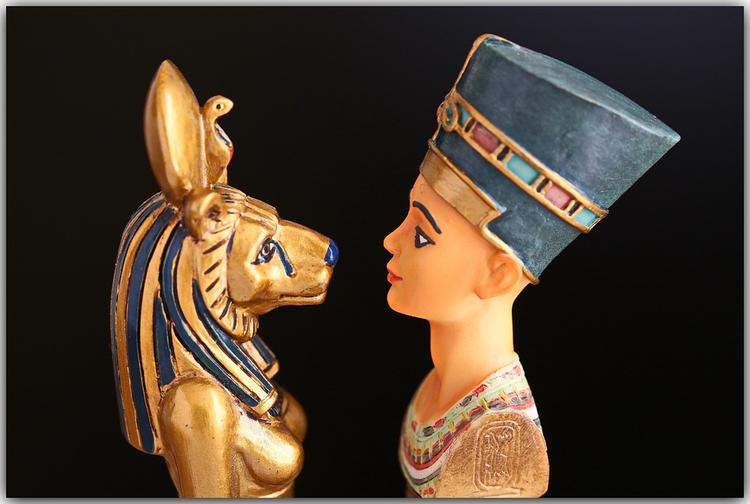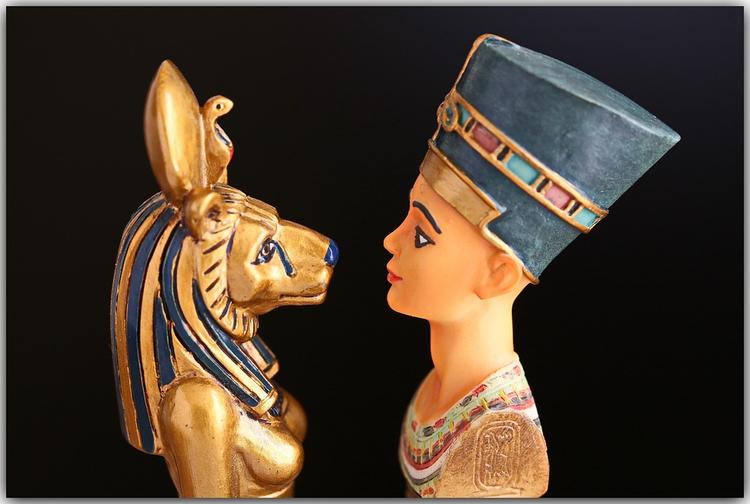Ann Arbor ( Mustafa Amin at the Akhbar al-Yawm [News Today] reviews the controversy in Egypt over Jada Pinkett Smith’s African Queens series of documentaries on Netflix. The first installment focused on Njinga, ruler of an early modern West African kingdom in what is now northern Angola. The second treats Cleopatra, and the trailer insists that the Egyptian queen was “black.” Adele James, a British actress of mixed ancestry, was cast in the title role.
The dean of the Egyptian archeological establishment, Zahi Hawass, spoke out against what he characterized as the appropriation of Egyptian history by American Afro-centrism, in which African-Americans attempt to claim Pharaonic Egypt as a key part of their heritage. An Egyptian lawyer sued Netflix, apparently for libeling the Egyptian nation, and for a while change.org carried a petition against the series that garnered tens of thousands of signatures before it was dropped. There have been social media wars over the issue.
The problems with this controversy are myriad, but they derive in large part from the unsatisfactory category of “race,” and from imposing contemporary understandings of race on ancients.
There are no biological races in the sense that most people understand the phrase nowadays. Homo Sapiens is only about 200,000 or 300,000 years old and has not had time to diversify very much. Moreover, there has been constant gene exchange and intermarriage across groups. A German essayist in the early 19th century said that Germans were fortunate to be a “pure” race. but there are no such things, and that guy was a jerk. Archeologists working among bones in a quarry of ancient Rome found a skeleton belonging to a Chinese or other East Asian man. If he married locally and had children, I guarantee you all Italians are now descended from him. Outward appearance or phenotype is often focused on for describing race, but that is determined by a very small number of genes and it reflects adaptations to climate and UV ray exposure, and can change in as little as 13,000 years when people move to a new place.
As I have pointed out, Ben Franklin in the 18th century did not consider Germans white.
In the early 20th century there were all kinds of disputes over “whiteness.” Some officials saw Lebanese as “Asiatic” and as part of a “yellow peril,” though the courts ultimately accepted Arabs as “white.” An Indian man sued to be allowed to marry a white woman because he was an Aryan and was turned down by the judge. Some people from Appalachia are from a mixed-race group called Melungeons. I may have a bit of Melungeon in my family tree.
In the United States and Britain there is an unfortunate binary of black and white, which is not true in Brazil, where a spectrum of racial appearances is recognized. People with any African heritage at all, no matter how small, are called Black in the U.S. (Except that at least 5% of self-described “whites” in the Deep South actually have some recent African ancestry.)
In Britain things are even more complex. I was living in London in the 1980s and was shocked when an Indian or Pakistani man on television said, “we Blacks.” In the US South Asians nowadays are typically grouped with East Asians as “Asians” and wouldn’t be called Black.
Zahi Hawass argues that Cleopatra, being a descendant of one of Alexander the Great’s generals (Ptolemy) was a Macedonian Greek.

Well, she certainly was. But one of her maternal ancestors was Persian and for all we know her grandmother or mother was Egyptian. She was reported to be the only Ptolemy who spoke the Egyptian language, which may well point to an Egyptian mother.
Mustafa Amin laments that Jada Pinkett Smith has made her “black” rather than “white,” and says that since she was Greek she would have been “blonde.” In other words, he has adopted into Egyptian Arabic American racial categories.
Even if Cleopatra’s mother was Egyptian, of course, it would not make her Black.
A recent genetic study of Egyptians in the ancient period in middle Egypt found that in the 2,000 years before Christ, these Egyptians were closely related to Levantines and Anatolians and Europeans and had much less sub-Saharan ancestry than is common in today’s Egypt. The authors admit, though, that things may have been different in Upper Egypt where there was known to be intermarriage with Nubians.
Ironically, during the past 1300 years Egyptians have come to have more sub-Saharan heritage, about 20 percent. My guess is that this is a result of Islam, since West Africans came through Cairo for pilgrimage to Mecca and settled in Cairo for trade and study. There was also household slavery, with some slaves from sub-Saharan Africa, but it was only one factor among many.
If the question is skin color though, if ancient Egyptians were close to Levantines they would have been olive-skinned. The genetic study said they had dark eyes. Moreover, that they had less sub-Saharan African ancestry than was common in the past two millennia does not mean they had none. Would they really have looked very different from Adele James?
So, people should chill out. Egypt is proud of being African and is a major force in the African Union. Egyptians shouldn’t give in to the kind of racism that is now plaguing Tunisia.
In the ancient world, no one looked at Cleopatra through a racial lens. No one cared what race she was, nor did they have a concept exacly like ours. (Ours are anyway mostly wrong.) She was a powerful sovereign over a country that served as the breadbasket of the Mediterranean. Julius Caesar loved her and had a child with her. Marc Antony also wooed her. They were mesmerized by this powerful woman, who they hoped could help them prove victorious in Roman power struggles. Her femininity, her power, her magnetism made her a significant figure in history. She was likely neither black nor white in contemporary American terms. But she was African, and the African continent celebrates here. Why is it so bad if the African diaspora also celebrates her?



 © 2025 All Rights Reserved
© 2025 All Rights Reserved